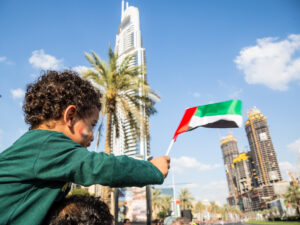Activist Demands UK Intervention in Humanitarian Emergency
Climate activist and humanitarian campaigner Greta Thunberg Gaza Crisis has issued a strong appeal to UK Prime Minister Keir Starmer, urging him to use his legal authority under international law to stop what she describes as an unfolding “genocide” in Gaza.
Speaking from an aid flotilla headed toward the enclave, Thunberg said the UK has a “moral and legal responsibility” to act immediately as the humanitarian situation deteriorates.
The flotilla, carrying essential food, medicine, and medical supplies, is attempting to deliver aid directly to Gaza. Organizers have expressed concern about possible interceptions by Israeli forces, raising fears of another international standoff at sea.
Flotilla Highlights International Pressure on UK
Thunberg’s participation in the flotilla adds urgency to international calls for a ceasefire and greater aid access. She argued that the UK, as a signatory to multiple treaties and conventions, must act to prevent further escalation.
Her statement has intensified debate in London about how far the Starmer government should go in applying pressure on Israel. Critics argue that words alone are insufficient in the face of what many organizations call a humanitarian catastrophe.
Starmer Faces Political Test Over Gaza
The UK government has urged a ceasefire and humanitarian corridors, but it remains unclear whether Starmer will take direct diplomatic action.
His upcoming schedule includes a visit to the Middle East, but Downing Street has not confirmed if he will meet Israeli President Isaac Herzog.
This ambiguity is fueling speculation that Starmer is trying to balance humanitarian advocacy with Britain’s diplomatic and defense ties with Israel. Analysts suggest a firmer stance could strain bilateral relations but also strengthen the UK’s credibility as a defender of human rights and international law.
Gaza’s Humanitarian Crisis Deepens
Conditions in Gaza remain dire:
- Severe shortages of food, water, and medical supplies
- Thousands trapped in conflict zones
- Hospitals running with dwindling resources
Aid groups warn that without urgent intervention, the crisis could escalate into one of the worst humanitarian disasters in decades.
Thunberg’s participation has drawn significant media attention, amplifying calls for stronger diplomatic action from countries like the UK.
International and Domestic Reactions
Thunberg’s intervention has sparked widespread debate:
- Supporters → praise her for raising awareness of a neglected humanitarian crisis.
- Critics → accuse her of oversimplifying a complex geopolitical conflict.
- Opposition parties in the UK → demand stronger action, including sanctions on Israel and more funding for humanitarian relief.
- Pro-Israel groups → argue her remarks ignore legitimate security concerns and could embolden extremist groups.
The Road Ahead for UK Policy
Prime Minister Starmer faces a growing test of leadership. Balancing strategic partnerships in the Middle East with humanitarian obligations will be central to his foreign policy.
Possible UK options include:
- Increasing humanitarian aid contributions
- Spearheading UN diplomatic initiatives
- Applying political pressure on Israel to ease aid restrictions
Each path carries significant political risks both domestically and abroad.
Conclusion
Greta Thunberg Gaza Crisis call has placed the UK government at the center of renewed international attention on Gaza.
With global pressure intensifying and humanitarian conditions worsening, Prime Minister Keir Starmer’s response will shape not only the UK’s role in the Middle East but also its reputation as a nation committed to international law and human rights.









